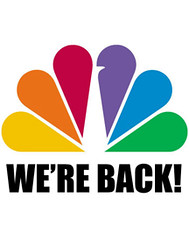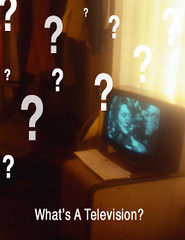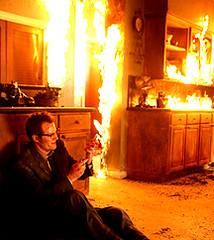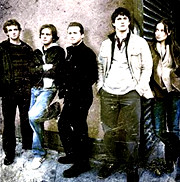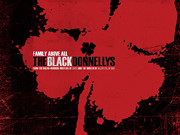
Last week, the Sci Fi Channel became SyFy in what is being called by some "the most ill-advised branding move since New Coke." (It's actually much worse than New Coke because there won't be a black market for the old product.)
The name change was originally floated to disbelieving Sci Fi fans as early as March. But even so, four months must not have been enough time for the future SyFy marketing and public relations team to get on the same page. It must not have been enough time because the excuses behind the rebranding effort are all over the place, enough so that SyFy deserves a Letterman-styled top ten list...
The Top Ten Stupid Excuses "Uttered" For Renaming The Sci Fi Channel
10. Although we love the name Sci Fi, because it's a generic term, we can never own it.
9. It positions the brand for future growth by creating an ownable trademark.
8. Syfy ushers in a new era of unlimited imagination and new dimensions.
7. It will pave the way for us to truly become a global lifestyle brand.
6. Syfy allows us to build on our 16-year heritage of success with a new brand built on the power that fuels our genre.
5. Michael Engleman asked "what if we could change the name without ever changing the name?"
4. It's much more hip and fits better with the new slogan "Imagine Greater."
3. SyFy is how our 18-to-34 techno-savvy crowd texts the name.
2. We want to appeal to more women and young people.
1. The name Sci Fi was associated with geeks and dysfunctional, antisocial boys in their basements.
So What Is The Real Reason Sci Fi Channel Had To Become SyFy?
The bobblehead equation.
That's right. The only legitimate reason for a successful 16-year-old brand to become something else is an entire room full of bobbleheads.
It starts innocently enough. Someone had nothing better to do. Or maybe they do, but don't want to do it. Or maybe they do, but want to feel like they own something. So they start pointing out problems: the name is too long, the name is limiting, the name doesn't appeal to enough people, especially women.
And then, maybe because people are afraid to lose their jobs in a recession, the entire room of creative guys and corporate shirts start bobbing their little heads up and down, down and up, up and down. Done. The Sci Fi Channel becomes SyFy.
Seriously. I've seen it happen in person several times over the last 20 years. And, I expect I will with even more frequency, in the next 20 years. It happens all the time and the consequences are usually much, much worse than the damage done by some committee on a nonprofit organization.
In this case, even the myth that Michael Engleman asked the question (contradicting other stories shared by the press) and inked out the new name five minutes later is baloney. Some of us already know where SyFy originated, and for a much better reason.
But no matter. Despite all the speculation, most people know the truth now. The only reason we have to endure the name SyFy is because of bobbleheads, with David Howe, according to some, being the biggest bobbler of all after he said no one would remember this in a few years' time. Um, okay. You just keep bobbling, David, and everything will be fine.
The Case For Message Management During Change.
The whole SyFy snafu actually makes an excellent case for message management. Although it often gets a bad rap, being likened to corporate speak and political spin, sometimes it's a good thing.
You see, sometimes message management simply ensures that twenty-some spokespeople don't go around the press circuit with a different excuse. When they do, it makes it look less like you had a bobblehead moment and much more like you're lying because there is no good reason at all.








